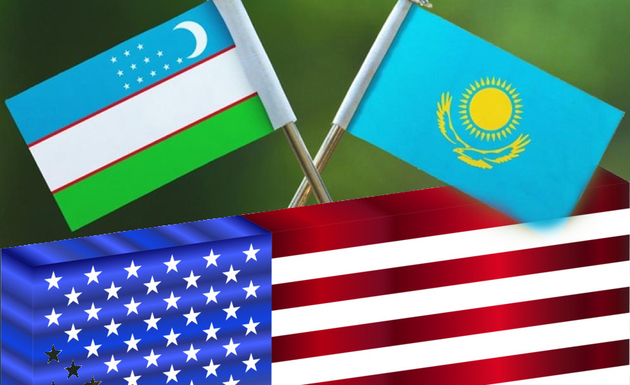The governments of Kazakhstan, Uzbekistan, and the United States have launched the Central Asia Investment Partnership under the umbrella of the C5+1 format, in order to promote private-sector growth and strengthen regional economic cooperation, The Diplomat writes in the article Why Kazakhstan Joined New Investment Partnership With Uzbekistan, US. The new initiative comes at a time when Kazakhstan is looking to diversify its economy to deal with the effects of the coronavirus pandemic and achieve its long-term goal of becoming one of the most developed nations by 2050.
The partnership, launched on January 7, is “designed to raise at least $1 billion over the next five years to support private-sector growth” according to a joint statement by the three governments, in order to advance private sector-led projects that “exemplify international standards for quality infrastructure and promote inclusive, transparent, and sustainable investments.” The initiative occurs as Kazakhstan seeks to decrease the country’s overall reliance on fossil fuels and the mining industry (such as uranium) as the cornerstones of its economy.
Thus, it is quite noteworthy that the aforementioned joint statement mentioned Kazakhstan’s Astana International Financial Center (AIFC) by name, which has reportedly signed bilateral Memorandums of Understanding with the U.S. International Development Finance Corporation to “deepen [U.S.] bilateral partnerships in Central Asia” and “[explore] support for investment funds and other bilateral projects.”
Nur-Sultan has worked hard to attract international companies to the AIFC, which aims to become a financial investment hub for Kazakhstan and Central Asia. At the time of writing 659 companies have been registered in the AIFC, and the center’s Astana International Exchange traded a total of $9.3 million this past December. Thus, it is an important accolade that the AIFC is the entity representing the government of Kazakhstan in the new investment partnership with Washington and Tashkent.
Moreover, in early January Kazakh President Kassym-Jomart Tokayev signed a new law that permits a simplified application form that foreign banks can use to open branches in Kazakhstan. “This will help to attract foreign direct investment into the country, increase competition in the banking market, and have a positive effect on the development of the financial sector,” said Bakhytbek Rysymbetov, the deputy director of the Banking Regulation Department of the agency.
One more recent development was the January 12 signing of an agreement between the Kazakh Ministry of Agriculture, a U.S.-based irrigation systems company called Valley Irrigation, and the Kazakhstan-based holding company Kusto Group. The project in question is the construction of a plant that will produce at least 1,000 pivot irrigation machines annually. “We expect these new systems to not only increase productivity and efficiency, but to help the environment by cutting water consumption by 50-70%,” a Kusto press release explained.
According to the World Bank, the Kazakh economy shrunk by 2.5 percent in 2020 due to the coronavirus pandemic, but the good news is that it is expected to grow as much as 2.5 percent in 2021. The aforementioned initiatives will hopefully not only improve the economy, but also promote economic diversification.
Kazakhstan is aiming to become one of the world’s 30 most developed nations by 2050, a goal pledged by First President Nursultan Nazarbayev in 2012; a key component of that plan was to invest more in industries such as green energy, agricultural goods, tourism, banking and finance, as well as the IT sector, including cryptocurrencies and data centers. This is why the investment partnership with Washington and Tashkent is important. Ideally this will bring investment to private companies and businesses in Kazakhstan and will help the country achieve the “30 by 50” goal.
The necessity to diversify the Kazakh economy is also critically important since the price of oil remains volatile and heavily dependent on the future of the pandemic, which has crippled the global commercial aviation and tourism industries, among others.
As the World Bank explained in its December 2020 outlook for Kazakhstan, “weak demand for Kazakhstan’s exports and depressed oil prices can delay recovery in growth. Despite the renewed commitment by OPEC+ to cut production, a high level of crude inventories and sluggish global economic recovery can continue to depress price well into 2021 at about 30 percent below the 2019 average price.” This troubling prediction reinforces the idea that Nur-Sultan must develop its other industries more.
Finally, from a foreign policy perspective, the investment partnership is a good way to strengthen relations between Washington and Nur-Sultan as President Joe Biden commences his administration. Apart from Afghanistan, Central Asia in general ranks low on the list of Washington’s foreign policy priorities; thus any new initiative to makes Kazakhstan positively feature in the radar of policymakers in the White House, Congress, and the State Department is always welcome.










